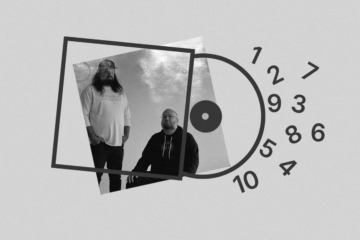Anika is not your everyday singer songwriter. Raised in the UK, she studied journalism and became a UK correspondent in Berlin. Alongside that she has been working in the music industry as a promoter and eventually manager of her own label. Disillusion followed and a very realistic way of seeing things in the world and the industry was the result. Her concerns are addressed in her songs, which she writes to get her voice out into the world. One of her partners in crime is Portishead member Goeff Barrow. Challenging the conformity of today.
What do you feel when you write music?
Originally when I wrote music, it is my way of venting things. That’s what most musicians do when they write I suppose. I find it is a really nice way, a way to release when I perform live. Often people think I’m a bit crazy, but I’m completely sober, have not touched anything before I go on. It’s just me – I can escape into wherever I want to go.
If you sit down at home, after you’ve finished a track – do you feel relieved?
In a way – I like using wordplay. I’m first and foremost a writer, a political journalist. I’ve written a lot of new songs that we are recording at the moment – for the second album. Obviously the first one was predominantly covers with a few originals. There are various reasons why we did that; it’s quite a long story. We are writing new stuff at the moment. It’s a play in words; it’s about current issues that affect everyone. It’s not really obvious, you have to look into the words and see what we are saying. It’s quite secretive.
You are trying to wrap it up in a code?
It’s almost like an inside joke with myself, I get to laugh on stage and no one knows what I’m doing. So it’s fine.
Do you still work as a journalist?
No, not at all. I’ve been on tour for the last year. I just had to give up my job – I was the UK correspondent. You can’t do that when you are on tour – I’m getting Internet once every week at the moment. But I’d go back to it. What I’m doing at the moment is a perfectly legitimate way to getting my voice heard. I used to work in the music industry for a couple of years. I had a lot of issues with the music industry – we have a kind of love hate relationship. It’s actually really nice to be a musician where I can challenge some stuff I really disliked. For me it’s just a political platform where I can mess with people. I can question what people consider normal – which is good.
You consider yourself a critic.
Not so much a critical person I just like to challenge what’s going on. There are so many people who are willing to go along with things because that’s what everyone else is doing. Especially in England – it’s even worse there than anywhere I know. There might be a cue in the street and other people would join it just because it’s there. And they wouldn’t even know what it’s for. That’s the way it works there and I was lucky enough to study at a very good university where they taught me to constantly question everything we read in the paper. It made me a very conscious journalist and a very conscious person in general. I’ve always questioned everything from a young age anyway. But I think it’s important. That’s why we made the album, and it is uncomfortable and a lot of people hate it – but that’s good, because it’s not what they consider perfect music. If everyone thought it was great, what would be the point? Then I’d be a follower as opposed to an aggravator.
So you’d rather choose being unsuccessful than sacrificing your ideals?
Yeah! I never wanted to necessarily be a lead singer. I just wanted to have my voice heard. I didn’t want to be on X-Factor and be rich and famous. It’s all fake money anyways – most of the time. They show you the cars, they take you to the hotel and then they drop you from the label and you are back in Tesco in England. Because I worked as a manager in the industry, I set up a label in Cardiff; I’m realistic about the way it works. The label that I’m on leaves the majority of stuff to sort out to me. We’ve got a very straightforward relationship.
That’s why Stones Throw appealed to you?
Yeah, that’s why we went with Stones Throw. In England and in Europe I’m on Invada, which is Goeff Barrow’s label, who is the Portishead guy that I wrote the album with. And when we were considering who to go in America with, there were a few options on the table. I knew Stones Throw from when I was younger through my brother. He was a massive Stones Throw fan, and I learned to dj with that kind of stuff. I knew that with them, I’d have more autonomy. They’ve got a reputation for bringing music to the table that wasn’t necessarily mainstream. That was with Hip Hop. People are confused why I’m signed to a Hip Hop label. It’s a label that endorses music that is doing something slightly differently. What we are doing is a grassroots movement for us. I’m not doing it for mass fame or success or money. It was a natural move to go with Stones Throw.









